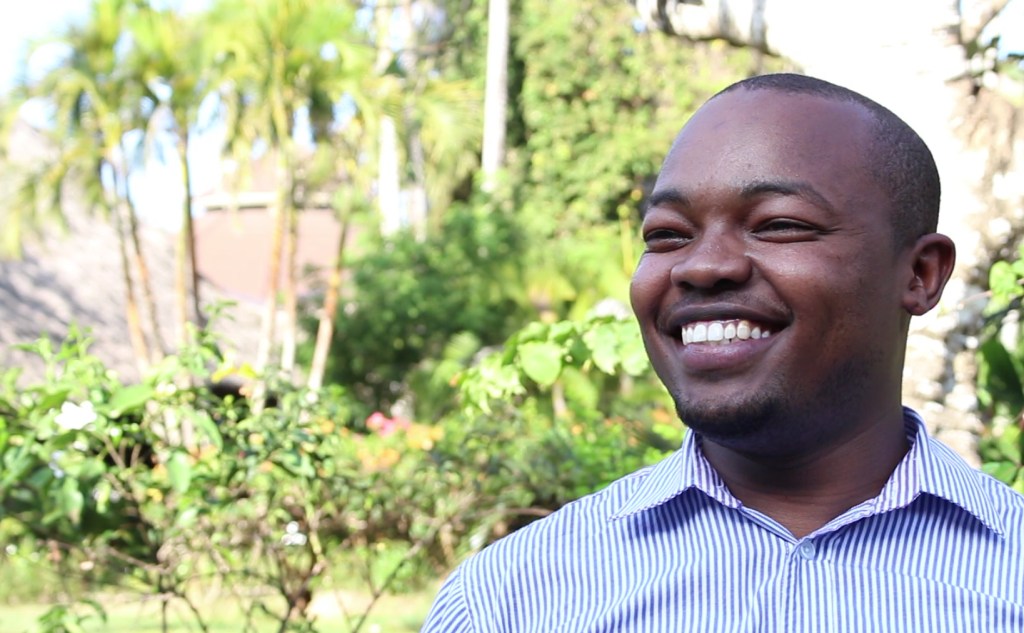Interview by Isaiah Esipisu, PAMAC news agency http://www.pamacc.org
Jacob Katuva is a doctoral researcher at the University of Oxford’s School of Geography and Environment. His research focuses on community groundwater access and poverty in Kenya. Katuva holds a M.Sc. in Environmental and Biosystems Engineering from the University of Nairobi and a B.Sc. in Water and Environmental Engineering from Jomo Kenyatta University of Agriculture and Technology.
Previously, the scientist spent over four years working as a consultant in engineering and development in the Eastern Africa region. He has vast experience in design-construction-operation and management of community rural water supply schemes, hydrological analyses, rainfall-runoff modelling and water balance models.
His experience in water resources management covers water resources assessments, developing and linking Management Information Systems (MIS) and Geographical Information Systems (GIS) and advanced geo-statistics to water resources planning and management as well as hydropower feasibility studies, evaluation and impact studies of WASH programs, rural water supply and pollution studies in the context of the mining, irrigation and the water sectors in rural Kenya.
Q. How did you get involved with the UPGro project?
I joined UPGro back in 2013 when I was consulting with Rural Focus Ltd during the implementation of the catalyst project led by Oxford University. I was heavily involved in the set-up of the environmental monitoring network and the socio-economic surveys. This provided a great deal of natural and social science data regarding groundwater level and quality, water usage, health and welfare indicators paving way for an interdisciplinary study. I ended up applying for the D.Phil. programme at Oxford University to research groundwater and poverty in sub-Saharan Africa with a particular focus on coastal Kenya. I was fortunate to obtain additional funding from Base Titanium, a mining company working in Kenya which is one of the partners in Oxford University’s UPGro consortium project Gro for GooD.
Q. Tell us about your studies at the Oxford University and how it relates to the UPGro project
My research at Oxford University explores the links between groundwater and poverty. Understanding groundwater and poverty linkages is critical to unlocking the potential of groundwater for poverty reduction. Central to accelerating and sustaining Africa’s development is improving the understanding of how improved access to groundwater resources can benefit the poor. This includes identifying the role of groundwater on productive uses such as livestock watering and crop irrigation, examining the relationship between poverty and changes in groundwater levels, and understanding how groundwater dependency and access to sufficient, affordable, reliable, safe, good quality water and physical access are linked to the socio-economic development of households. These dimensions are pertinent to policy and practice in poverty reduction.
Q. What are some of the early findings for your research?
There is evidence that the depth of boreholes and poverty are associated: We saw wealthier households being associated with deeper groundwater sources while poorer households were associated with shallower wells and boreholes. However, due to the cumulative nature of the volumetric data from the handpump water data transmitters (http://www.oxwater.uk/technology.html) we could not disassociate the handpump usage per household since the transmitter, similar to a water meter, recorded the volume abstracted for each handpump and not volume abstracted by each household.
Q. What kind of advice would you give to the County Government of Kwale about groundwater, given your experience so far?
The UPGro project has generated pertinent knowledge on water services delivery in Kwale County and has identified pathways to poverty reduction. Two of the preliminary findings in Kwale include the discovery of paleochannels in Msambweni, empirical evidence of the benefits of smart monitoring and privatized professional maintenance and repair services on rural water supply infrastructure.
This discovery of paleochannels by Professor Olago of the University of Nairobi and his team, can accelerate achieving universal and equitable access to safe drinking water services for the County population. County should invest time and resources in understanding this resource and how it can be exploited to meet the ever-growing water needs for the county.
The County government should embrace the professional maintenance and repair services on rural water supply infrastructure to ensure rural communities, health centres and school children enjoy equitable access to safe drinking water.
This model of maintaining rural water services has been developed and tested in Kwale and Kitui County with positive results. The model is called the FundiFix model and more details can be found here: https://reachwater.org.uk/wp-content/uploads/2016/11/Fundifix-booklet-WEB.pdf. To accelerate poverty reduction, the County government should ensure borehole drilling and equipping standards are adhered to, communities water infrastructure receive preventive maintenance and professionalized repair services to keep water flowing.
Q. What is your message to upcoming scientists who are interested in your area of specialization?
I would urge upcoming scientists in Kenya to progressively broaden their research to incorporate both the social and natural sciences. Integrating the two, thereby widening our understanding of the socio-ecological systems, will lead to the development of much more effective policies informed by the needs of the people.
Q. What are your future plans beyond the UPGro project?
Part of my future plans includes seeing the completion, implementation and operationalization of the findings of the UPGro project here in Kwale so that our groundwater resources can benefit everyone here, in particular the poor. In addition I will be excited to contribute to framing the poverty reduction policies and strategies for the County building on the evidence emerging from the longitudinal socio-economic studies over the last four years.
Interview by Isaiah Esipisu; Images by Nancy Gladstone/Gro for GooD project


Comments
One response to “Young scientist seeks to understand link between access to groundwater and poverty”
Awesome. Keep it up Nancy and Jacob.